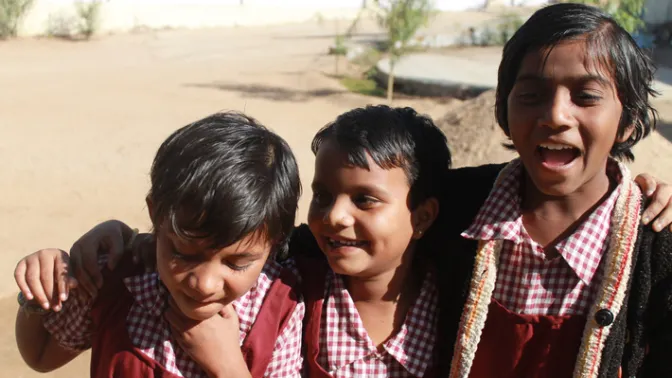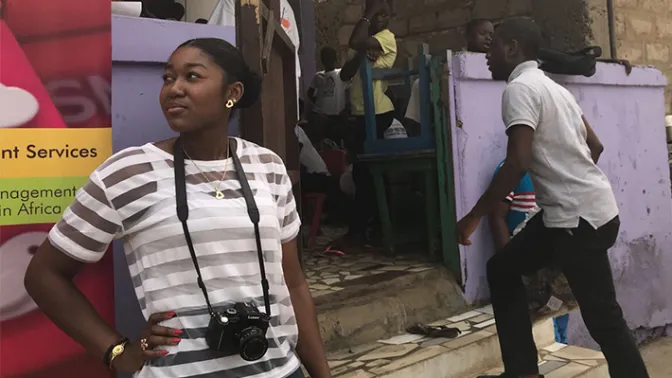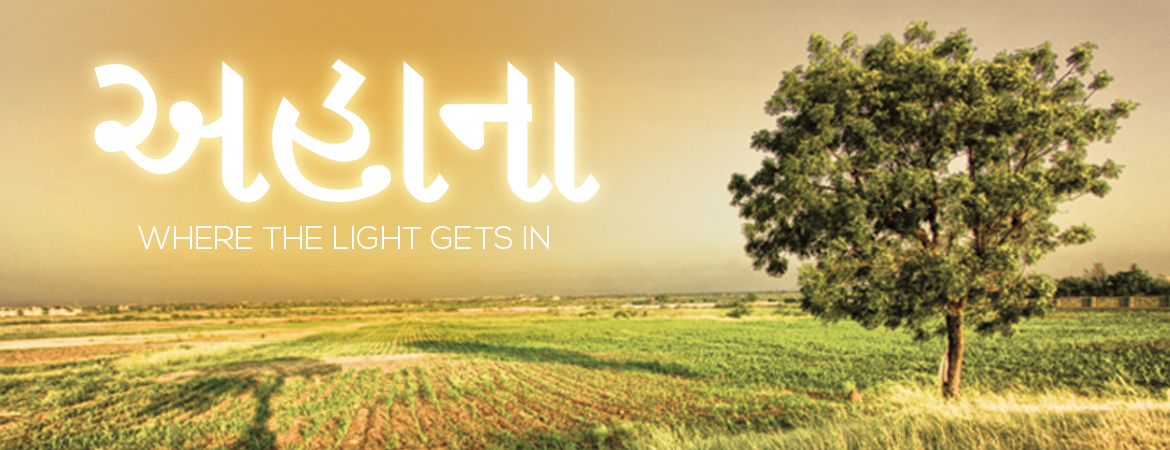
Where the Light Gets In
Aahana is a female name. In Hindi, it means “first rays of the sun.” According to Indian astrology, women named Aahana are sensitive to the poor, helpless and weak. They are protectors, entrepreneurs and lofty thinkers.
Rina Patel, a 19-year-old sophomore majoring in marketing and legal studies, shares all of these qualities. Last year, she started Aahana, a 501c(3) nonprofit devoted to educating underprivileged women and children in India. Aahana has become her baby — her purpose.
Patel’s father always told her, “I’m never going to tell you good job. I’m going to tell you do better.” She took his advice.
Patel’s first childhood memories are of halcyon summer days playing in the Phoenixville, Pa., sun with her two sisters, Jill and Mita. She was raised in one of those idyllic suburban developments of single-family homes where locks didn’t need latching. Her father still has hours of VHS footage of the Patel girls blowing bubbles and riding bikes — sometimes sporting nothing but diapers. The community was close. Patel’s cousins lived just down the road. There were huge family dinners on Sundays with children running circles around the table. Rina Patel caught her first sunbeams there — 7,000 miles away from her family’s ancestral home in Gujarat, India.
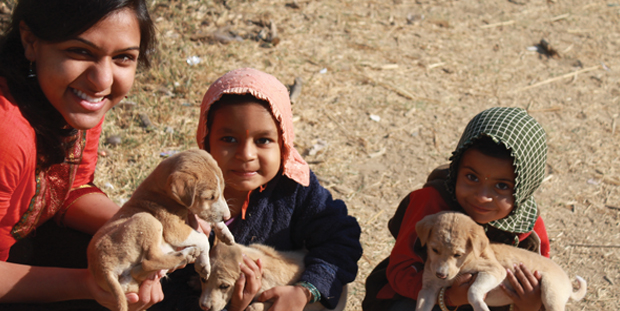
But Patel’s story — and the story of Aahana — doesn’t begin in Pennsylvania. It begins with her parents and their journey to the United States. Her mother, Bhikhi, and father, Ghanashyam — both children of farmers — grew up in separate villages in Gujarat. They were betrothed as toddlers and they married as teens. When Ghanashyam graduated high school, he left his village to find work while his young bride stayed with her new in-laws to work the fields. Bhikhi had failed seventh grade twice and hadn’t read since she was 11, instead focusing on cooking, cleaning and learning to be a “proper” wife.
Says Patel: “She was powerless, living in a whole new family, in a new setting. It’s just the way things are.”
Ghanashyam and Bhikhi lived in the slums of Mumbai for a couple of years — poor, but laboring for more. In 1985, Ghanashyam finally saved enough money to immigrate to the United States. Bhikhi followed two years later. For a while, each worked two to three jobs at a time, but they made it work. Today they are happy and madly in love. Ghanashyam is a successful business owner. He and his wife have handed their girls the American Dream while teaching them to honor their cultural heritage. Which is why they made sure to take the family back to Gujarat each summer and to never avert their children’s eyes from the extreme poverty that resides on the outskirts of Gujarati towns.
It was during one of these summer trips, when Patel was 15, that her uncle took her to see the home of children whose parents had died of AIDS. They had no possessions. No means. Nothing. They were her age.
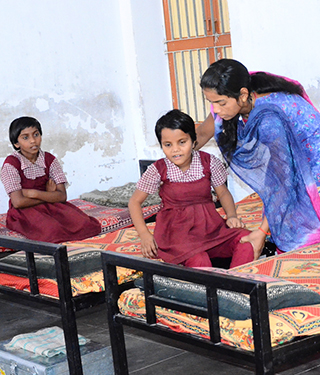
During high school, Patel flirted with the idea that would become Aahana. She sold t-shirts and raised $1,000 for Japanese tsunami relief. By her senior year, she was president of the Cultural Awareness Club. She started a chapter of Hygiene for Haiti; organized a fundraiser for Darfur and a Soles4Souls shoe drive. A few friends pitched in, but it was always Patel’s show. Even when the high school administration said no, she found ways to raise money for those in need. By the time she graduated high school, Aahana was on the tip of her tongue.
“I was ready to go,” she says. “I had been nit-picking at it for a while. I didn’t want to waste any more time. I knew I wanted to work with women, and I knew I wanted to make a difference.”
When Patel returned to Gujarat the summer before she came to Drexel, her uncle took her on a tour of local schools that were in dire need of funding for everything from food to bedding. It was there that she met Jayantibhai Patel (a popular name in Gurjarat), a principal of a local school and a member of the Human Development Research Foundation, an Indian NGO that funds and operates orphanages. Principal Patel and his wife had been running schools in Gujarat for almost 30 years. They’d start a school and run it, at times completely out-of-pocket, until government funds kicked in (though a pittance compared to the immense need). He explained in plain terms the necessity the region had for more schools for impoverished and disabled children. Principal Patel did not sugarcoat. In fact, he stripped away the imaginary walls between the First and Third World in a way that was too heartbreaking to ignore.
“I knew I needed to support this organization,” Patel says. “I knew right away.”
When, just months later, Principal Patel opened Mamta School, an orphanage for deaf and disabled children, Patel told her father she wanted to start a nonprofit
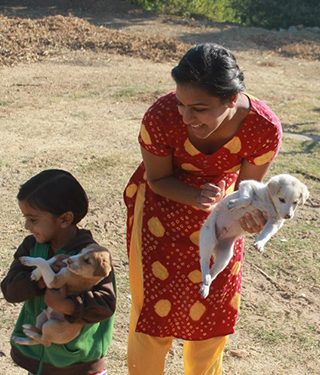
Aahana’s first initiative was to partner with the Human Research Foundation to send monetary aid to Mamta School. To date, Aahana has raised $11,500 and has helped the school increase its population from 30 children to 65. Aahana’s donations have paid for vocational training, food, bedding, clothing and various other expenses.
Aahana has also been encouraged by sponsorship from local Indian-America organizations that have taken on Patel’s call to action in Gujarat, including the North Penn High School Indian Cultural Organization and RAASadelphia.
But still, the organization is fledgling. The goal is to make it sustainable — to be able to provide aid and educational programs to more schools in India.
While Gujarat’s per capita GDP is well above the national average and the state is among the most industrialized in the country, approximately 44 percent of the population lives below the poverty line and the number of poor families has spiked 30 percent over the last decade. Nearly 40 percent of the women living there are illiterate. It’s not surprising, as less than half of school-aged girls actually attend school. Ten percent of Gujarat’s children are disabled.
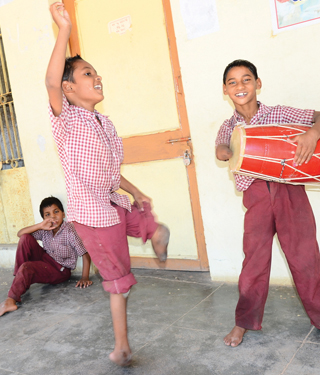
Caste is a veil that exists and doesn’t exist: a ladder with moving rungs. Case in point: Patel’s family are Vaishyas — historically known as merchants and farmers. However, their success has helped them to rise above the typecast. In fact, there is a saying in the States that goes something like this: “Patels own motels.” It’s true, to an extent. It’s not a prejudice. It is what it is. Patel’s own father has owned a few. Below the Patels on this imaginary totem are the Shudras or Harijans (Untouchables – whom Mahatma Gandhi called “Children of God.”) It is these children to whom Patel is drawn.
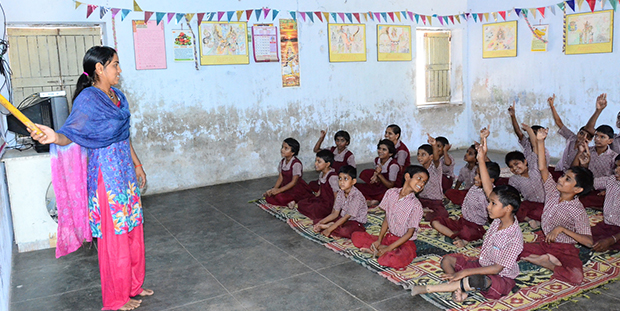
Aahana is about more than just funding programs for the impoverished in India; it’s about changing perceptions right here in the United States — which is why the organization has opened chapters at the University of Central Florida, University of South Florida, Loyola University of Maryland, University of Houston and the University of Delaware.
“We should all be more educated about what is going on in the world,” she says. “Especially college students. We can kind of get stuck in our own bubbles of ‘go to school, party, work, try to get a job after college.’ And if things don’t go your way, it’s like the end of the world. Life needs to hit you hard to get out of the bubble.
“The way I see it, we have security nets here. There is no welfare, Social Security or food stamps in India. If you have no food, you can’t go to Philabundance to get food. You just starve. In India, if you are born into poverty, it’s hard to pull yourself out.”
Changing minds can be hard to do. It’s not just about poverty; it’s about cultural differences we tend to overlook. For instance, Patel points to her mother — a woman who stopped reading in grade school. Consequently, her “muscle,” as Patel’s father puts it, “hasn’t been exercised.” Even more, a common American proclamation is: “You live in America. You should speak the language.” But it isn’t as easy as picking up a book or pulling yourself up by the proverbial bootstraps. Her mother never had to try. And then there is the misperception that her mother deserves our sympathy.
“She doesn’t!” Patel says. “My mother certainly doesn’t feel sorry for herself. It is the way it is. She has a great life. She has everything she needs in life. She never thought she’d have a nice house in a nice neighborhood or have three daughters who went to great schools.”
Earlier this year, Aahana became the first nonprofit organization to incubate in Drexel’s Baiada Institute for Entrepreneurship. Under the mentorship of Executive Director Mark Loschiavo, Patel is learning how to plan for Aahana’s future. The goal isn’t just to keep funding Mamta School, but to provide it with the resources to become self-sufficient so the organization can start new schools and educational programs.
“In order to build Aahana to a scalable venture, Rina recognizes the need to create a business model that is sustainable,” Loschiavo says. “The challenge will be finding ways to grow the business via income streams that go beyond charitable contributions.
“Rina has been fearless in pursuing her passion and purpose for providing opportunities for young girls and women to enrich their lives beyond expectations,” Loschiavo says. “She is a delight to work with because she absorbs mentoring like a sponge and proactively acts on advice. As a young woman herself, she exhibits a leadership style that will continue to serve her well.”
Plans are in the works to purchase land to build a new facility for the school and expand its operations to include new educational programs. Patel is also vigilantly pursuing funding for new educational initiatives for girls and young women in the villages near where her parents grew up. Patel also plans to start a “sponsor a girl” program to pay for the entire educations of young women.
“At some point, I want to start a microfinancing initiative,” she says. “But that’s still a long way off.”
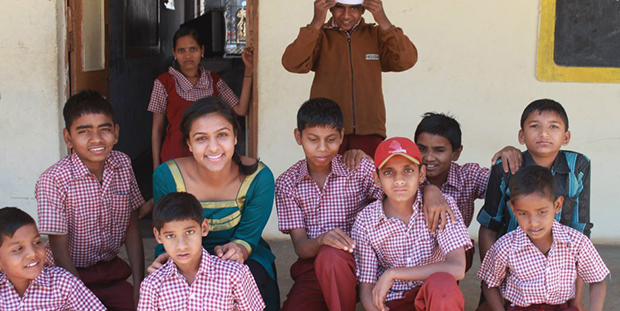
Patel is aware that Aahana is trudging uphill against a system that —illusory or not — is coded deep in India’s collective DNA. Poverty can take generations to break, she says. But with cultural awareness and education, there is hope. She is steadfast in her commitment to bring the light of literacy and understanding to the most cracked and crumbled areas of Gujarat.
“I know that it’s just a start, and the struggles those children will face growing up will hopefully be struggles that their own children will not have to endure,” Patel says. “Maybe then, their children will be able to run around in a perfect neighborhood, completely safe and comfortable.”
There might be cracks. But cracks can be beautiful things. That’s where the light gets in.
